“Without my parents’ prayers, I might have turned out very differently”: Indian music luminary Keba Jeremiah
by Karen Tan // August 22, 2019, 4:03 pm
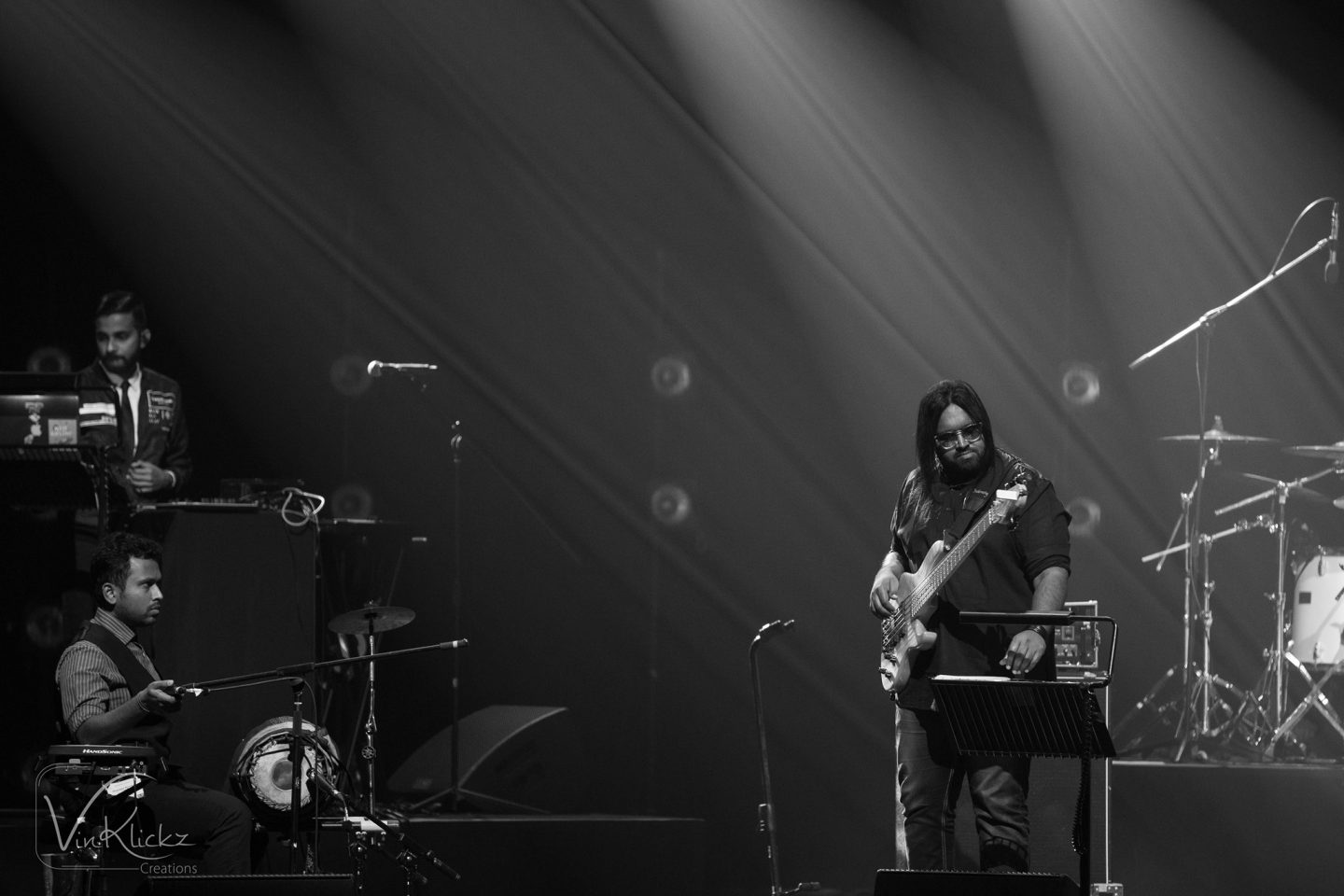
Keba Jeremiah, who has performed on the world stage with mega names in the Indian music industry, finds his anchor in Christ and his church. All pictures from Keba Jeremiah's Facebook.
Keba Jeremiah Arul’s name is right up there in the music credits of award winning Indian film scores.
As a guitarist and music producer, Keba, 33, often collaborates with the who’s who in India, including the global multi-award winner, AR Rahman, otherwise known as the Mozart of Madras.
Keba Jeremiah is India’s next generation of music luminaries.
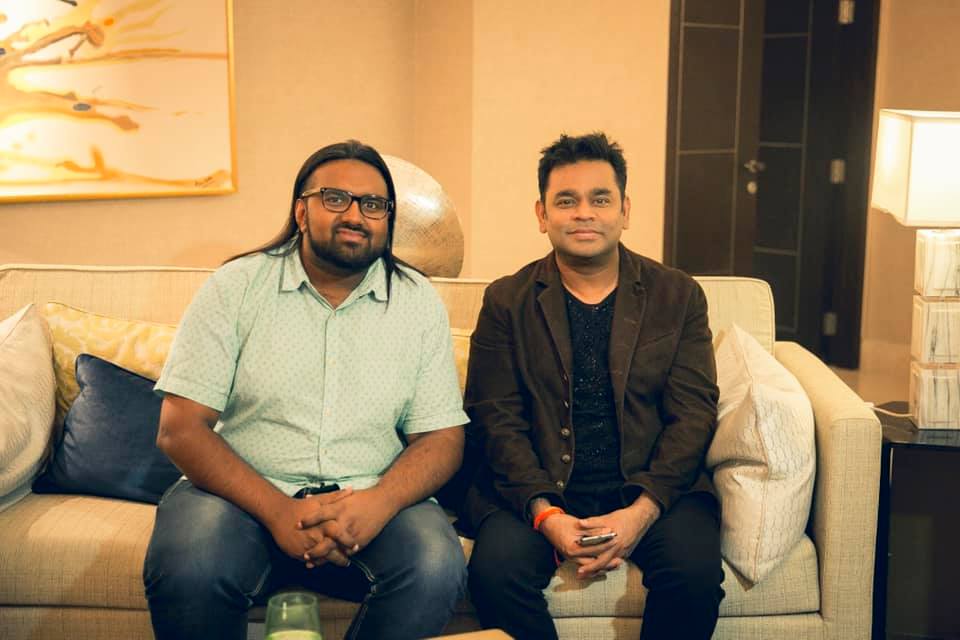
Keba Jeremiah (left) often works on film soundtracks for AR Rahman (right) and as a session musician on Rahman’s live performances around the world.
But there is none of the glitter and glam when Salt&Light meets Keba at the back of a make-shift stage in the OCBC Arena at the Singapore Sports Hub.
He is part of the worship team of musicians for Celebration of Hope’s Tamil rally, “The Power of Hope”.
Dressed in a simple, short-sleeved, cotton shirt and slacks, with geeky glasses (albeit luscious locks), he looks and speaks like the millennial neighbour next door, rather then a glitzy star.
You only catch a glimpse of his stature backstage, when young fans come forward for autographs and pictures.
Looking back, Keba, who grew up in Dubai, chuckles at how far he has come. “It’s so funny, I was not a great music student! My parents used to get these remarks from my music teacher, ‘Your son hasn’t learned, please make sure he learns’ and stuff like that.”
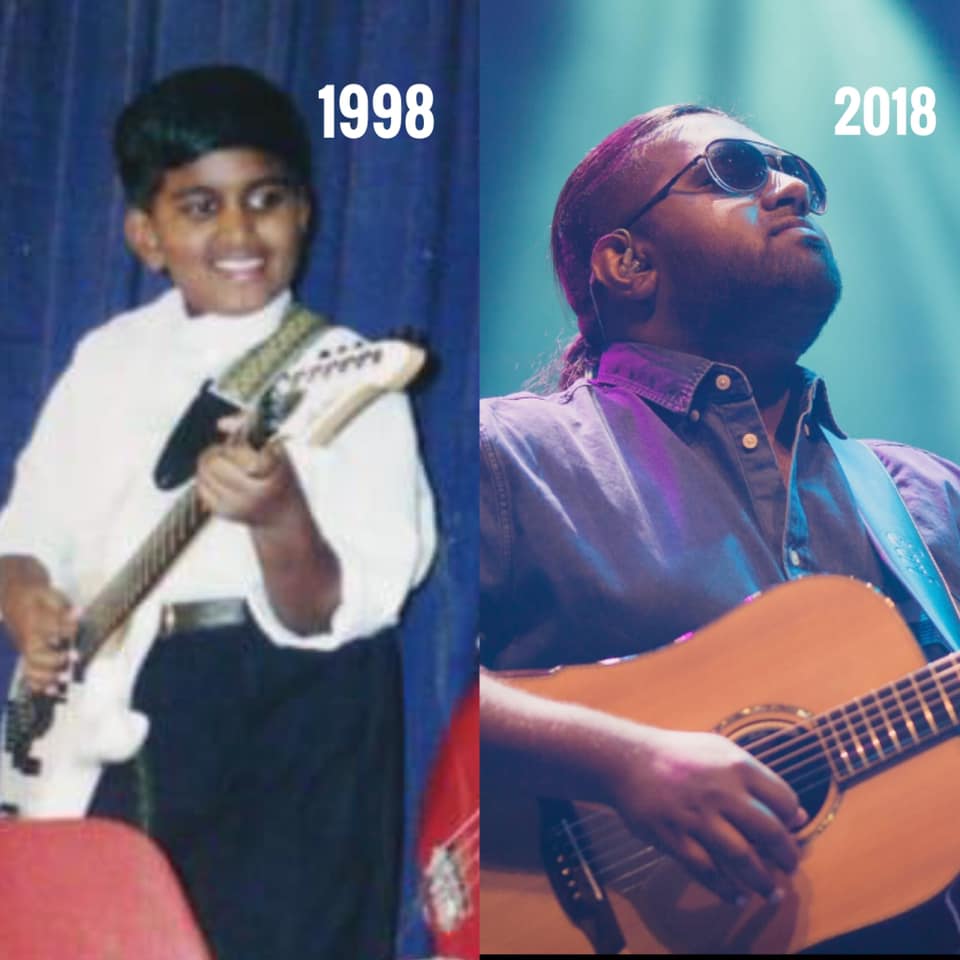
“I was 16 years old when I gave my life to Jesus. It’s one of the best choices I made in life. I grew up in Dubai but moved back to India in 2004. One of the things that all Indian parents do when they settle abroad is they try to send us back to India for education,” said Keba Jeremiah on his early life.
Nevertheless he has his parents to thank for his music career. “My dad was really passionate about music and wanted to learn music as an adult.
“But my brothers and I were always messing around with the instruments, so dad never got to learn. He decided that since he wasn’t able to learn, he would send us for classes instead. He put the three of us on a different instrument each. I was put on guitars.
“As soon as I could play a few chords, my parents made me play in Sunday school. They both were Sunday school teachers,” Keba lets on with a laugh.
Facing the music
Still, making a career in music did not always strike the right chord. “It was really hard for my parents to accept it. I trained as a mechanical engineer, and they were like, ‘why don’t you just find a job and do music as a hobby?’
“But I didn’t have to convince my parents after a while.
“Other people were telling them, ‘You know, he’s working with this person and that.’ When they kept hearing these reports, that’s when they were like, okay, maybe what he’s doing will work out.”
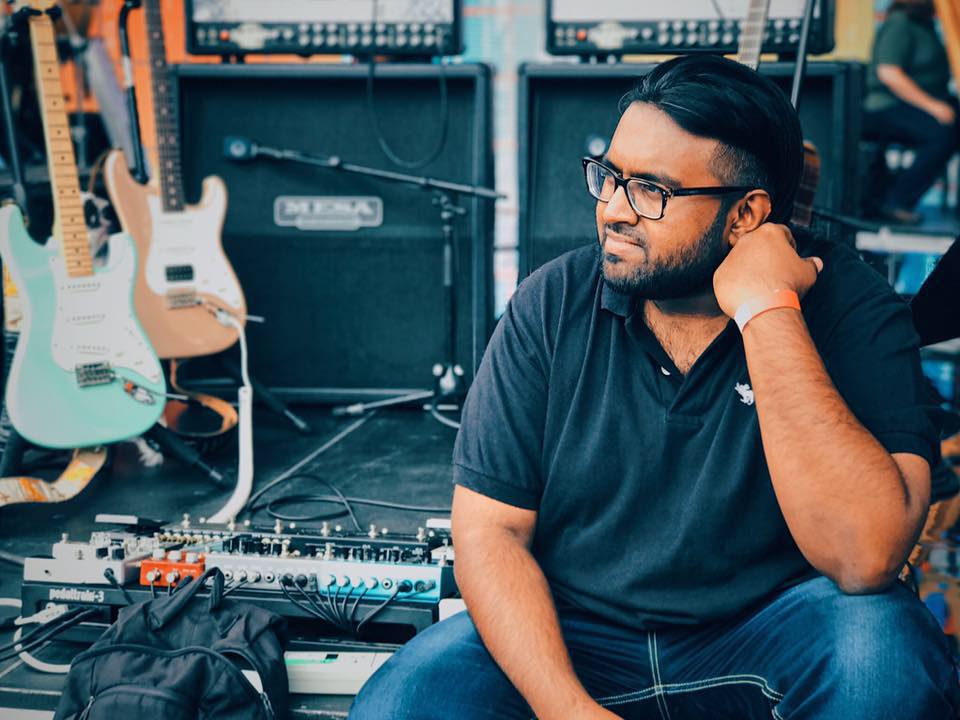
“Indian churches used to depend on songs from all around the world. But now, a lot of singer songwriters are coming up, and they’re writing their own content. It’s getting better,” said Keba of Indian Gospel music.
Faith foundations
Christian musicians who started in faith but ended up wide off the mark have made recent headlines.
But Keba, who went professional in 2007, intends to keep the faith. “One of the strongest things in my life is my parents’ strong foundation. Without their prayers, I would have gone somewhere else.
“You can work in the secular world, but you still need to find your roots in church.”
“You can work in the secular world, but you still need to find your roots in church and the right balance. So it’s important to be strongly rooted in the local church and be accountable to your leader or pastor. I have made mistakes but I have a really good pastor who guides me.
“And having a good set of Christian friends helps. They would directly ask me, ‘Dude, you’re doing this, why?’
“I appreciate the fact that they ask me openly.
“It’s tough to admit that you’re wrong, but I’m glad that they do ask me these questions.”
“Without all that, it’s so easy to get lost and you can go exactly the opposite direction of what God wants you to do.”

“When I travel on concert tours, I try to find a local church to visit, to stay connected. There usually isn’t any Christian in many of the groups that I travel with,” said Keba, who visited the Hillsong Campus in Sydney, Australia, while on tour with AR Rahman in 2017.
Whenever he is at home base, he serves in church. But he is mindful to give opportunities to the next generation as well.
“What’s happened over the years is you have a lot of youngsters rising up. I thought to myself: I should make way.
“So I get rostered about once a month.
“Playing Christian music and serving in church bring me the greatest joy in life. That sense of fulfilment, of joy, and peace, they don’t come from playing music outside even though you get a lot of accolades and praise.”
Who are you praising?
The road to stardom is not always clearly paved but Keba intends to keep to the straight and narrow.
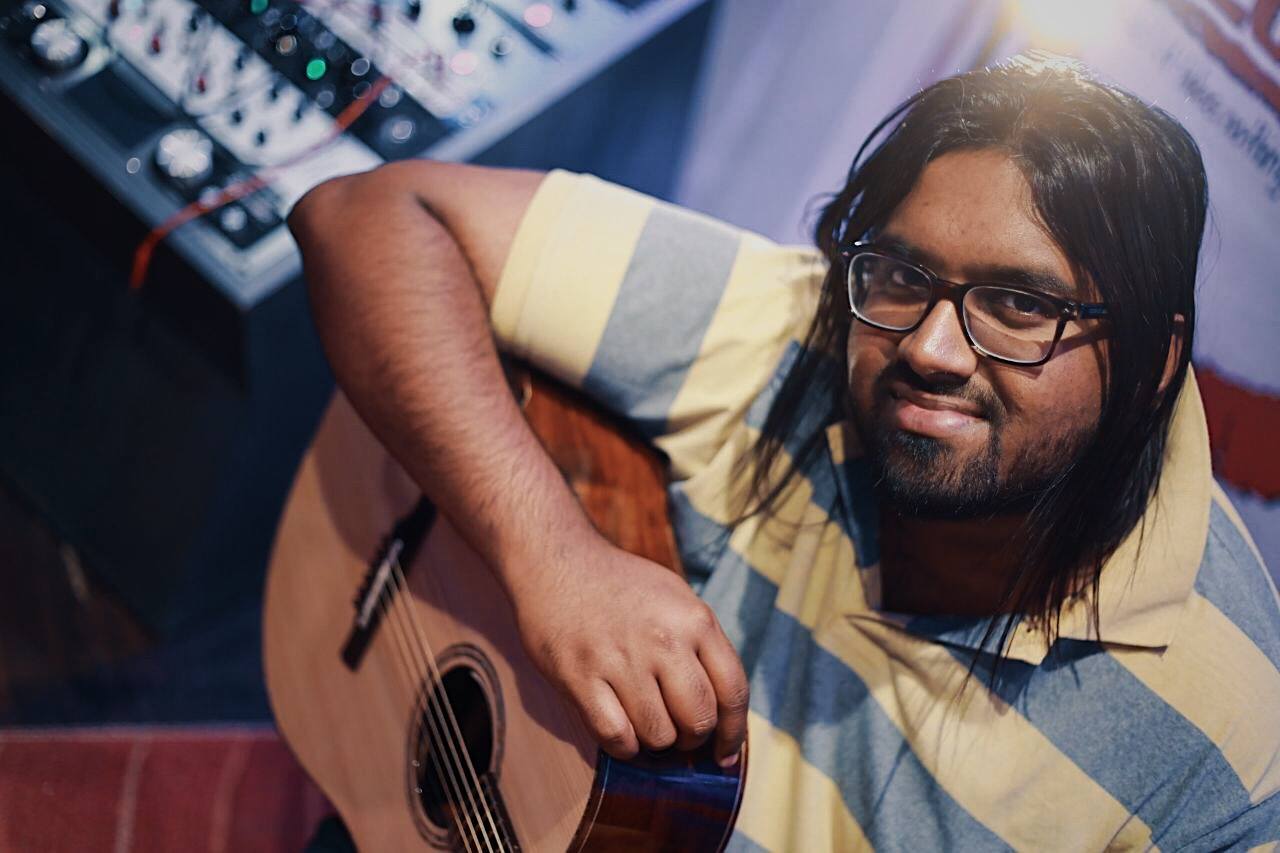
When Keba went to India for his tertiary studies, he started attending the New Life Assemblies of God. He was part of the church worship team when he got talent spotted. “It is a pretty big church and a lot of influential people related to the arts and entertainment would come. I started meeting these people as early as 2006, when I was still in college.”
“In India, the entertainment industry and religion are very strongly intertwined. So you need to be very careful or you might end up praising other gods.”
Despite the cloud of witness that surrounds Keba, there are still tough calls and decisions to make.
“I had to be quite vocal about my faith, and as a result have lost friends in the industry,” he said.
“I used to play for this incredible band, which was one of the best learning curves in my career.
“They were doing songs in Sanskrit, a super old language which I didn’t understand. The guys told me the songs were about the earth and nature. But then my pastor told me the music was actually giving praise to some gods.
“I had to be quite vocal about my faith, and as a result have lost friends in the industry.”
“They were really good friends and it was so hard to tell them I couldn’t continue anymore.
“When I told them the reasons, they were like, ‘What’s up with him?’
“They couldn’t understand and said they were open to playing in my church.
“But would I play in their places of worship?”
Keba left the question unanswered but it was clear his mind had already been made up way before he found fame.
Life took on a different trajectory when he made his stand. “I saw this whole shift in my career. Boom, and suddenly I was working with some of the biggest directors.”
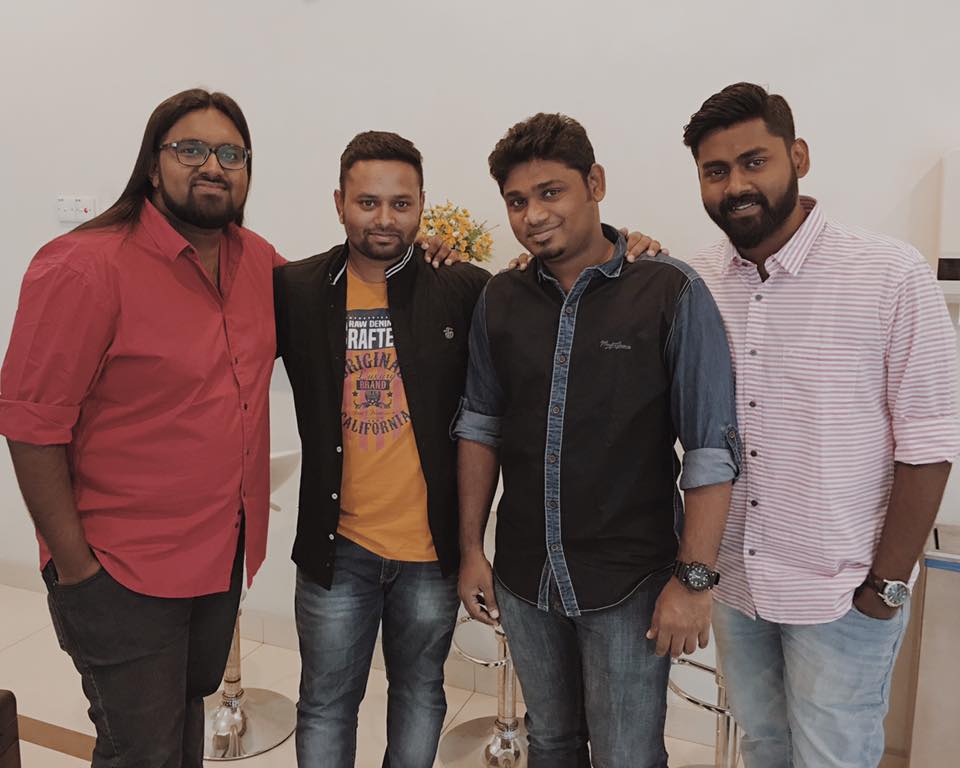
For the last five years, Keba Jeremiah has been attached to the band, RIJK ( acronyms of the band members’ names: Rodney Jayaraj, Isaac Dharmakumar, John Praveen and Keba Jeremiah ). They played at the Tamil rally at the Celebration of Hope in May this year. “We are from four different churches but Christ is the unifying factor.”
“Still, it is not easy. I’m still learning.”
When asked how he sees his career panning out, his answer is disarming.
“I really don’t know if music is what I’ll be doing. I am very open to what God wants me to do. If He asked me to do something else in the completely opposite direction, I’m absolutely okay with it.”
It is an unexpected reply from someone whose career is on the rise.
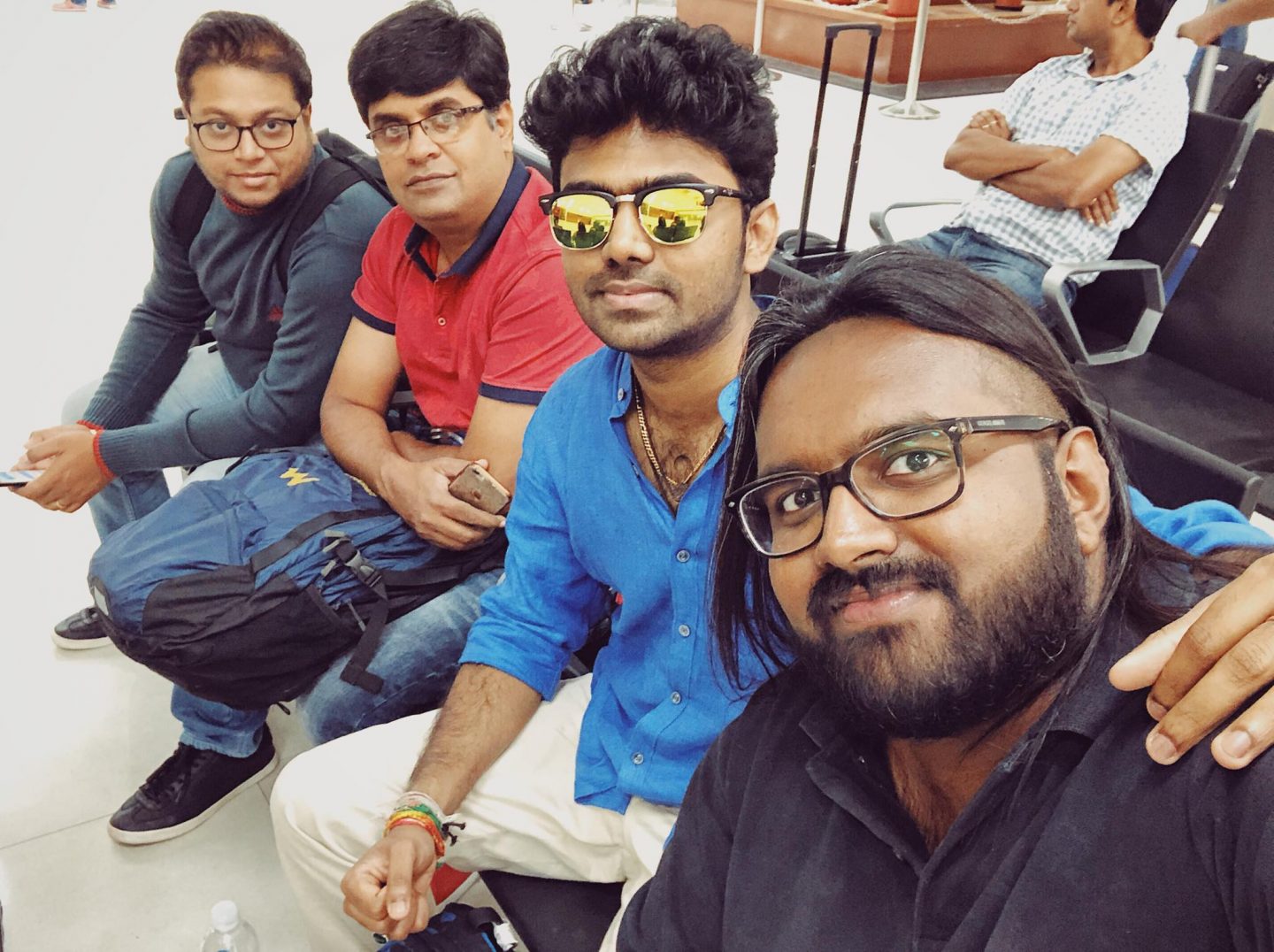
Keba and mates at the Chennai International Airport, bound for a concert tour in North America in 2018.
This total surrender and complete trust in God was borne out of a personal tragedy he reveals: “I got married in 2014 and my wife left me in 2015, in a marriage that was not consummated.
“You go through some tough experiences and realise that a lot of stuff isn’t in your control.”
“She was from our church and we dated for a long time before we got married.
“It was pretty complicated, and I never understood.
“The last thing she told me was, ‘Keba, you’re a good guy, but I can’t do this anymore. So I have to go.’”
“And that’s when I realised, this whole idea of placing trust in humans, you can just lose it. It’s hard, you go through some tough experiences and realise that a lot of stuff isn’t in your control.
“Since then, I learnt to trust God with everything.
“God takes us through these things for a reason. He has made me a better person.”
“I don’t blame God, I think He takes us through these things for a reason. God has made me a better person.
“We went through something so crazy in our marriage. But it helped me see that other people’s problems are even bigger.
“When people talk to me, I am able to understand more, I can hear and listen more. Somehow, my problem doesn’t seem so big anymore.”
Keba is determined to neither wallow in self-pity nor bask in fame and acclamation.
His next project is a Hindi Gospel album: “I feel the need for Gospel music is really huge in India.

“When I’m travelling, when I’m in my room, I like to just chill and find a very easy space to talk to God. I try to include God as much as possible, wherever I am.” Keba Jeremiah on a road trip in India, 2016.
“We have a huge population, and a huge section of people who haven’t heard the Gospel.
“This whole idea of producing Gospel music is really important to me.”
We are an independent, non-profit organisation that relies on the generosity of our readers, such as yourself, to continue serving the kingdom. Every dollar donated goes directly back into our editorial coverage.
Would you consider partnering with us in our kingdom work by supporting us financially, either as a one-off donation, or a recurring pledge?
Support Salt&Light


